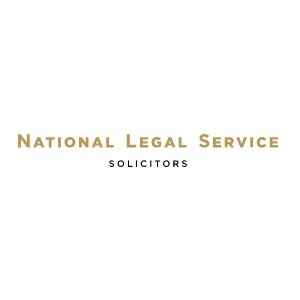Best Arrests & Searches Lawyers in London
Share your needs with us, get contacted by law firms.
Free. Takes 2 min.
List of the best lawyers in London, United Kingdom
About Arrests & Searches Law in London, United Kingdom
Arrests and searches in London, like the rest of the United Kingdom, are governed by a set of laws and regulations designed to balance the powers of law enforcement with the rights of individuals. The primary function of arrests and searches is to uphold public safety and investigate criminal activity. The legal framework ensures that such procedures are conducted fairly and responsibly to protect citizens' rights. These laws encompass the Police and Criminal Evidence Act 1984 (PACE), Human Rights Act 1998, and various other statutory instruments that specify police conduct during arrests and searches.
Why You May Need a Lawyer
There are several situations where an individual might need legal advice related to arrests and searches:
- If you have been arrested and believe your rights were violated during the process.
- To understand the legal implications and defenses available if charged with an offense following a search.
- If you need guidance on whether the police followed proper protocols during their search or arrest.
- To challenge the legality of evidence obtained during a search.
- If you face increased scrutiny or repeated stops and searches without apparent cause.
A lawyer can offer crucial advice and representation to ensure that your rights are protected during legal proceedings.
Local Laws Overview
The local laws concerning arrests and searches in London revolve around several key elements:
- The Police and Criminal Evidence Act 1984 (PACE): This is a cornerstone statute that regulates police powers, including arrests and searches. It sets guidelines for the conduct of officers and the rights of individuals.
- Stop and Search Powers: Under certain conditions such as reasonable suspicion, police can stop and search individuals. Limits are set to ensure these powers aren't misused.
- Arrests Without a Warrant: Police can arrest someone without a warrant if they are committing an offense, have committed an offense, or are about to commit one.
- Reasonable Grounds for Suspicion: Police need reasonable grounds to suspect involvement in criminal activity to perform searches.
- Guidelines from the Human Rights Act 1998: Any action by law enforcement must respect human rights, including the right to privacy and freedom from unnecessary or arbitrary detention.
Frequently Asked Questions
What rights do I have if I'm stopped and searched by police?
You have the right to be informed of the reason for the search, the identity of the officer, and the office they work for. You are also entitled to a written record of the search.
Can police legally search my home without a warrant?
Generally, police need a warrant to search your home. However, exceptions exist, such as when there is an immediate threat of harm or during a hot pursuit.
What should I do if I'm arrested?
Stay calm and ask why you're being arrested. You have the right to legal representation and can contact a solicitor immediately.
What counts as reasonable grounds for a search?
Reasonable grounds are based on objective facts and should be more than a vague belief or hunch. Examples include matching a suspect description or possession of suspicious items.
Do I have to give my personal details to the police during a stop and search?
You're not required to provide your personal details unless the police officer cites a specific reason related to their investigation.
Can the police seize my property during a search?
Yes, police can seize items if they believe they are related to a crime, such as stolen goods or illegal substances.
How long can I be held in custody without being charged?
The maximum time is usually 24 hours, but it can be extended to 36 or 96 hours for more serious offenses or with judicial approval.
Will the police inform my family if I'm arrested?
The police must make arrangements for someone to be notified about your detention unless you request them not to, and it does not interfere with the investigation.
What happens if I resist arrest?
Resisting arrest is a criminal offense and can lead to additional charges, potentially resulting in a more serious legal situation.
Can I film or record the police during my interaction?
You can record interactions with the police as long as you do not obstruct their work. However, be aware of privacy and respectfulness during recording.
Additional Resources
- Citizens Advice Bureau: Offers free legal advice on various issues, including arrests and searches.
- Liberty: An organization dedicated to defending civil liberties and human rights in the UK, providing guidance on legal matters.
- The Law Society: Provides a directory of solicitors and resources for obtaining legal assistance.
- Independent Office for Police Conduct: Investigates complaints about police conduct, including stop and search practices.
Next Steps
If you believe you need legal assistance regarding arrests and searches:
- Consider seeking legal counsel from a solicitor experienced in criminal law.
- Utilize available resources such as legal aid if you qualify for assistance based on your circumstances.
- Document all interactions with law enforcement, including date, time, officer names, and any witnesses present.
- Contact relevant organizations that can provide additional support and advice based on your specific case.
Remember, understanding your rights and the laws governing arrests and searches in the UK is crucial in ensuring fair treatment and recourse.
Lawzana helps you find the best lawyers and law firms in London through a curated and pre-screened list of qualified legal professionals. Our platform offers rankings and detailed profiles of attorneys and law firms, allowing you to compare based on practice areas, including Arrests & Searches, experience, and client feedback.
Each profile includes a description of the firm's areas of practice, client reviews, team members and partners, year of establishment, spoken languages, office locations, contact information, social media presence, and any published articles or resources. Most firms on our platform speak English and are experienced in both local and international legal matters.
Get a quote from top-rated law firms in London, United Kingdom — quickly, securely, and without unnecessary hassle.
Disclaimer:
The information provided on this page is for general informational purposes only and does not constitute legal advice. While we strive to ensure the accuracy and relevance of the content, legal information may change over time, and interpretations of the law can vary. You should always consult with a qualified legal professional for advice specific to your situation.
We disclaim all liability for actions taken or not taken based on the content of this page. If you believe any information is incorrect or outdated, please contact us, and we will review and update it where appropriate.















